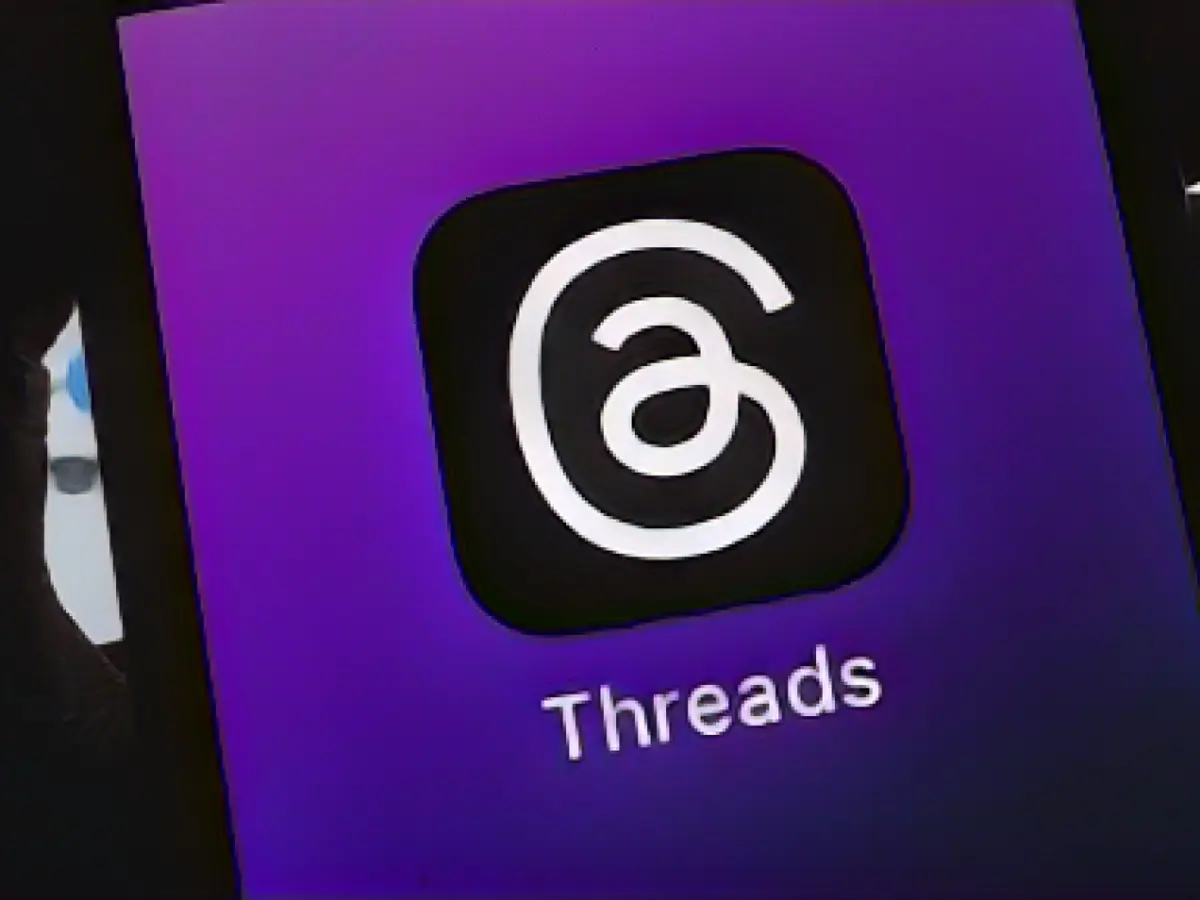Meta - Threads short message service launches in the EU
Elon Musk's Twitter successor X has a new strong competitor in Europe. The Facebook group Meta launched its short messaging service Threads in the EU after a delay of more than five months. Threads is based on Meta's photo and video platform Instagram. This means that the service can access connections between hundreds of millions of users right from the start, whereas other X competitors first have to create them.
Users can use their Instagram login details to log in to Threads. You can also use the service without a profile - but then you cannot create your own posts or interact with other users' posts.
Meta left out the EU when Threads was launched in July. The company justified this with legal uncertainties with regard to "new digital laws". According to observers, this probably refers to the dual package of the Digital Services Act (DSA) and the Digital Markets Act (DMA).
Zuckerberg sees potential for over one billion users
According to the latest figures from the fall, Threads had around 100 million monthly active users. Facebook founder and Meta CEO Mark Zuckerberg emphasizes that he sees potential for a service geared towards public discourse with more than one billion users.
However, Threads is different from Twitter and X in many ways. Instagram CEO Adam Mosseri said that the service should not be too news-oriented. It remains to be seen whether Threads is a direct replacement for Twitter's role of being the place to take the pulse of the world. Meta's German X account has already shown itself to be confident of victory: "Gameover" was the caption for a picture of a tic-tac-toe game in which the Meta logo won against the X symbols.
Since Musk bought the short message service Twitter and renamed it X, the online platform's user numbers have been falling, according to market researchers. The departure of major advertising customers has also accelerated recently. One of the triggers was Musk's support for a post containing an anti-Semitic conspiracy theory. At almost the same time, hate speech researchers demonstrated how advertising from well-known brands can be displayed alongside Nazi posts.
X claimed that the researchers had manipulated the platform to bring about the result they wanted. Musk apologized for his X post and explained that he had been misunderstood. However, the patience of many large advertisers was exhausted and they continued to keep their ads off the platform. Musk then verbally abused advertisers during a public appearance, accusing them of causing the platform's failure.
X on a downward trend since Musk takeover
Musk, the richest person in the world, paid around 44 billion dollars for Twitter in October 2022. Even before the recent exodus of advertising customers, X's advertising revenue was only half of what it was in Twitter's day, according to him. Musk is relying more heavily on subscription revenues - but according to experts, these revenues have not yet been able to fill the gap. Advertising has traditionally been by far the most important source of money for Twitter. The financial service Bloomberg wrote this week that X is expected to generate revenue of 2.5 billion dollars this year. In 2021, it was still more than five billion dollars.
Several competitors see an opportunity to build on Twitter's former importance with alternatives. Threads is considered a particularly strong candidate thanks to Instagram as a basis. Other competitors such as Mastodon and Bluesky are still much smaller than X. Another challenger to X, first called T2 and then Pebble, has already gone out of business.
Read also:
- Telefónica targets market launch for hologram telephony
- vzbv: Internet companies continue to cheat despite ban
- Telefónica targets market launch for hologram telephony in 2026
- Worldcoin project docks onto Telegram and Reddit
Meta's introduction of Threads, a short messaging service, in the EU challenges Elon Musk's Twitter successor X in Europe. Despite a delay of over five months, Threads benefits from Instagram's userbase, providing an immediate connection to millions of users. Users can log in using Instagram credentials or anonymously, but without a profile, they can't create or interact with posts. Initially, Threads was not launched in the EU due to legal uncertainties concerning new digital laws like the DSA and DMA.
Mark Zuckerberg, Meta's CEO, sees Threads as having potential for over one billion users, given its focus on public discourse. Unlike Twitter and X, Threads aims to avoid being too news-oriented, but it remains to be seen if it can replace Twitter's role as the global pulse-taker. Meta's German X account expressed confidence, describing Threads as a 'gameover' for competitors.
Since Musk acquired Twitter and renamed it X, its user numbers have decreased, and major advertising clients have left. The departure was partly due to Musk's support for an anti-Semitic conspiracy theory, causing well-known brands' ads to appear alongside Nazi posts. Musk accused advertisers of causing the platform's failure, verbally abusing them during public appearances.
Twitter's advertising revenue has halved since Musk's takeover, with subscription revenues failing to fill the gap. Market researchers suggest X may generate $2.5 billion in revenue this year, a significant decrease from 2021's figures. Several competitors see potential in building on Twitter's former importance with alternatives, but Threads, as the Instagram-based service, appears to be a strong candidate.
Despite Threads' potential, other competitors like Mastodon and Bluesky remain smaller than X. Another competitor, initially named T2 and later Pebble, has already ceased operations. The online social media landscape continues to evolve with new challengers emerging, demonstrating the dynamic nature of microblogging and internet communication in 2023.
Source: www.stern.de








